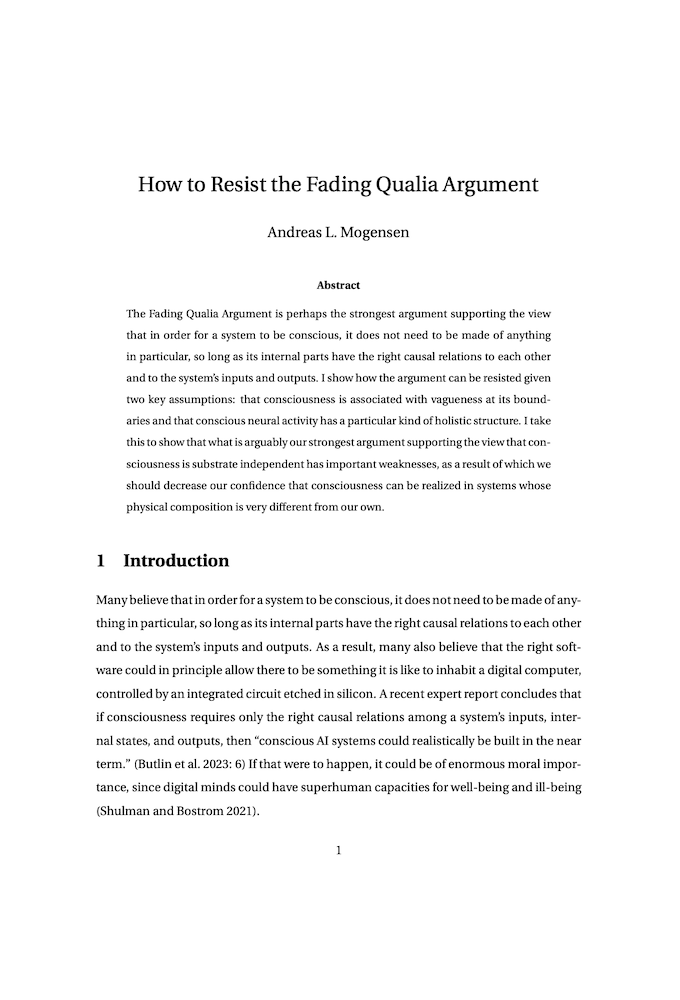How to resist the Fading Qualia Argument
Andreas Mogensen (Global Priorities Institute, University of Oxford)
GPI Working Paper No. 5-2024
The Fading Qualia Argument is perhaps the strongest argument supporting the view that in order for a system to be conscious, it does not need to be made of anything in particular, so long as its internal parts have the right causal relations to each other and to the system’s inputs and outputs. I show how the argument can be resisted given two key assumptions: that consciousness is associated with vagueness at its boundaries and that conscious neural activity has a particular kind of holistic structure. I take this to show that what is arguably our strongest argument supporting the view that consciousness is substrate independent has important weaknesses, as a result of which we should decrease our confidence that consciousness can be realized in systems whose physical composition is very different from our own.
Other working papers
Cassandra’s Curse: A second tragedy of the commons – Philippe Colo (ETH Zurich)
This paper studies why scientific forecasts regarding exceptional or rare events generally fail to trigger adequate public response. I consider a game of contribution to a public bad. Prior to the game, I assume contributors receive non-verifiable expert advice regarding uncertain damages. In addition, I assume that the expert cares only about social welfare. Under mild assumptions, I show that no information transmission can happen at equilibrium when the number of contributors…
The weight of suffering – Andreas Mogensen (Global Priorities Institute, University of Oxford)
How should we weigh suffering against happiness? This paper highlights the existence of an argument from intuitively plausible axiological principles to the striking conclusion that in comparing different populations, there exists some depth of suffering that cannot be compensated for by any measure of well-being. In addition to a number of structural principles, the argument relies on two key premises. The first is the contrary of the so-called Reverse Repugnant Conclusion…
Against Anti-Fanaticism – Christian Tarsney (Population Wellbeing Initiative, University of Texas at Austin)
Should you be willing to forego any sure good for a tiny probability of a vastly greater good? Fanatics say you should, anti-fanatics say you should not. Anti-fanaticism has great intuitive appeal. But, I argue, these intuitions are untenable, because satisfying them in their full generality is incompatible with three very plausible principles: acyclicity, a minimal dominance principle, and the principle that any outcome can be made better or worse. This argument against anti-fanaticism can be…

